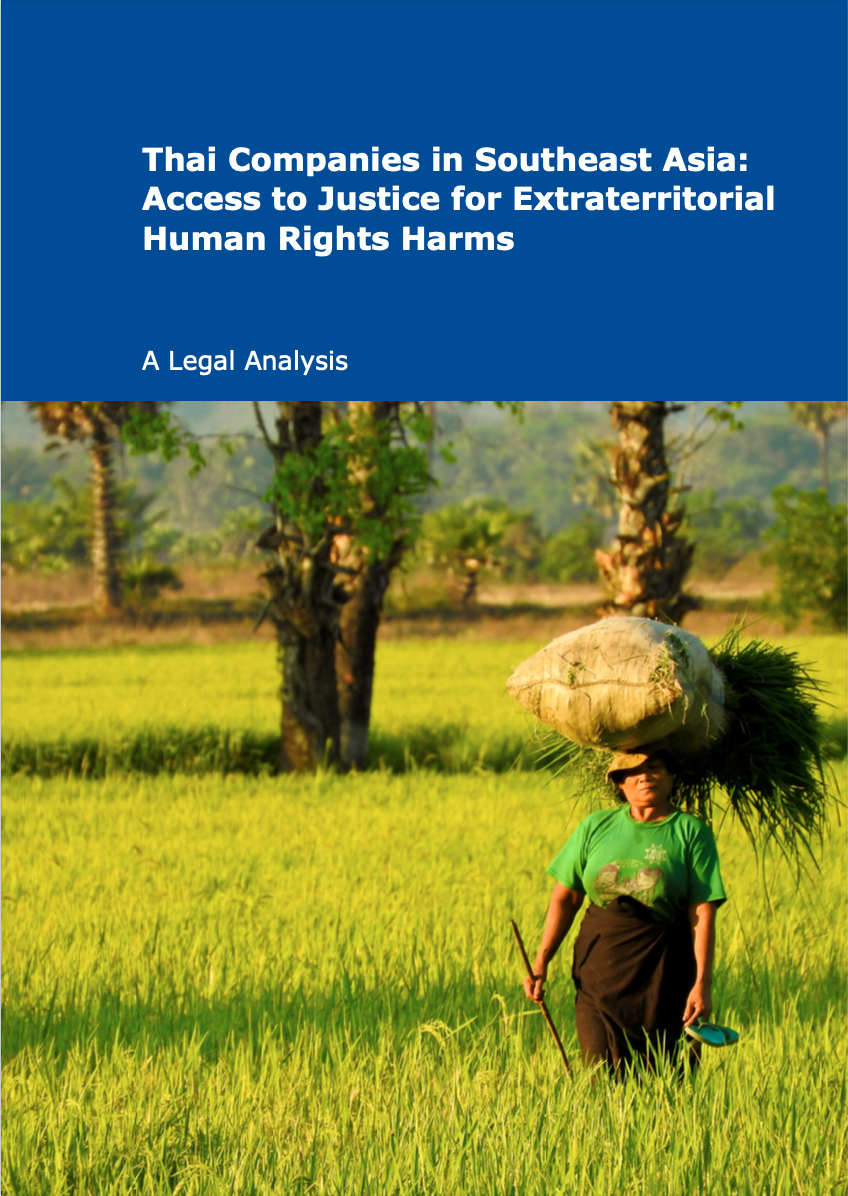In a new report published today, the ICJ called on the Thai Government to review and amend its laws, policies and practices to remove obstacles in holding Thai companies accountable for wrongdoing outside the country’s borders.
The recommendations of the report, addressing business activities of a transnational character, include a request for the Government to ensure that its laws and actions are in alignment with Thailand’s international legal obligations and international human rights standards.
Some of obstacles that are identified include: limitations on liability owing to the status of companies as legal persons as opposed to natural persons; the legal nature of corporations as distinct juridical entities; evidentiary challenge of access to corporate documentation; jurisdictional challenges in the home state; conflict of laws; and statutes of limitation.
The report also looks at the aspects of complexities in civil and administrative liability and the use of collective complaints for redress.
The report analyses Thailand’s legal framework governing corporate legal accountability for outbound investments and the remedies available and accessible to affected persons.
It recalls the obligations of Thailand to protect the human rights of persons not only within its territory, but also, to some measure, extraterritorially. This obligation extends to activities of Thai business entities, especially in cases where the remedies available to victims before the domestic courts of the State where the harm occurs are unavailable or ineffective.
Key recommendations to the Government of Thailand, the Parliament of Thailand and justice sector actors include:
- Extending the jurisdiction of Thai courts to cover claims against corporations and State enterprises that are domiciled or which principally conduct their business affairs in Thailand, regardless of whether alleged human rights abuses by the companies or their subsidiaries occurred in another country;
- Expanding liability for certain abuses caused by the conduct of a company’s subsidiaries over which it exerts control;
- Providing legal and procedural guarantees in domestic law to increase access to information about corporations and their activities, particularly in relation to cross-border enterprise activities;
- Relaxing the rule governing statutes of limitations to ensure that it will not be unduly restrictive to injured persons seeking to bring claims relating to human rights abuses committed abroad by corporations, including – by providing that a statute of limitation shall not be effective against civil or administrative actions brought by victims seeking reparation for serious human rights abuses;
- Facilitating access to justice of victims and their representatives in ensuring their agency in choosing the appropriate jurisdiction and justice mechanism before which they can litigate their case or otherwise seek remedy or reparation;
- Processing class action trials without undue delay and allowing class suit for cases filed in a Thai court by plaintiffs from another country who may not have the resources or capacity to otherwise pursue a claim individually before Thai courts;
- Ensuring that the division between administrative and civil jurisdiction, particularly for State enterprises, should not be used as a reason to obstruct victims or their representatives in accessing justice;
- Strengthening the role of the National Human Rights Commission of Thailand (NHRCT) to investigate, document, and expose instances of human rights abuse committed by Thai transnational corporations abroad, even in the absence of express powers;
- Providing training for members of the legal and judicial professions in handling cases involving corporate human rights abuse, and particularly abuse arising from cross-border business activities; and
- Providing legal aid and other funding schemes to claimants who are citizens and non-citizens in relation to cases of rights abuses arising from business activities.
Download
Southeast-Asia-Access-to-Justice-Thai-companies-Publication-ENG (English)
Southeast-Asia-Access-to-Justice-Thai-companies-Publication-THA (Thai)

